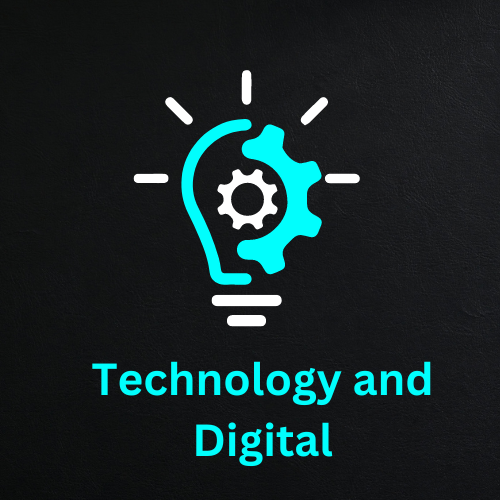
Ethical Frontiers: Exploring the Moral Landscape of Genetic Engineering
Genetic engineering has been one of the most transformative scientific advancements of the modern age. From revolutionizing medicine to enhancing agricultural productivity, its impact is profound and far-reaching. However, with great power comes great responsibility. As we unlock the secrets of genetic codes and gain the ability to modify them, we also confront a myriad of ethical dilemmas. This article delves into the moral landscape of genetic engineering, examining the ethical considerations, potential benefits, and risks associated with this groundbreaking field.
Understanding Genetic Engineering
Definition and Basic Concepts
Genetic engineering involves the direct manipulation of an organism’s DNA to alter its characteristics. This can be achieved through various techniques such as recombinant DNA technology, gene cloning, and genome editing. The goal is to introduce new traits or enhance existing ones, providing solutions to medical, agricultural, and industrial challenges.
Historical Development and Key Milestones
The journey of genetic engineering began in the 1970s with the development of recombinant DNA technology. This breakthrough allowed scientists to combine DNA from different organisms, creating genetically modified organisms (GMOs). Since then, advancements such as the Human Genome Project and the discovery of CRISPR-Cas9 have revolutionized the field, making genetic modifications more precise and accessible.
The Ethical Dimensions of Genetic Engineering
What Makes Genetic Engineering Ethically Significant?
Genetic engineering’s ability to fundamentally alter life raises profound ethical questions. The power to modify genetic material challenges our understanding of nature, human identity, and the boundaries of scientific intervention. The ethical significance lies in the potential for both tremendous benefits and unforeseen consequences.
Key Ethical Principles in Genetic Engineering
Several ethical principles guide the discourse on genetic engineering:
- Beneficence: The potential to bring about positive outcomes, such as curing genetic diseases.
- Non-maleficence: The obligation to avoid harm, including unintended consequences and ecological impacts.
- Justice: Ensuring fair access to genetic technologies and addressing social inequalities.
- Autonomy: Respecting individuals’ rights to make informed decisions about their genetic information.
Genetic Engineering in Medicine
Gene Therapy and Its Potential
Gene therapy holds the promise of curing genetic disorders by correcting faulty genes. Conditions such as cystic fibrosis, muscular dystrophy, and certain types of cancer are being targeted through gene therapy, offering hope for previously untreatable diseases.
Ethical Issues in Human Genetic Modification
Human genetic modification, especially germline editing, raises significant ethical concerns. Germline modifications are heritable and can impact future generations, leading to debates about consent, long-term effects, and the possibility of unintended consequences.
Case Studies of Medical Breakthroughs and Ethical Debates
One notable case is the use of CRISPR to treat a patient with sickle cell disease, which highlights both the potential and ethical complexities of gene editing. Ethical debates often focus on the balance between potential cures and the risks of off-target effects or unintended genetic changes.
Genetic Engineering in Agriculture
GMOs and Their Role in Food Security
Genetically modified crops have been developed to improve yield, pest resistance, and nutritional content. These advancements can significantly enhance food security, especially in regions facing agricultural challenges.
Ethical Concerns About Environmental Impacts and Food Safety
The introduction of GMOs into the environment raises concerns about biodiversity, ecosystem balance, and the potential for cross-contamination with non-GMO crops. Additionally, there are ongoing debates about the long-term safety of consuming genetically modified foods.
Balancing Benefits and Risks in Agricultural Bioengineering
While the benefits of GMOs, such as increased crop productivity and reduced pesticide use, are significant, it is crucial to address the risks. Responsible regulation, continuous monitoring, and transparent communication are essential to balance these factors.
The Promise and Peril of CRISPR Technology
How CRISPR Works and Its Revolutionary Potential
CRISPR-Cas9 is a gene-editing technology that allows for precise modifications in DNA. Its ease of use, cost-effectiveness, and accuracy have made it a game-changer in genetic engineering, with applications ranging from agriculture to medicine.
Ethical Implications of Gene Editing in Humans and Other Organisms
The ability to edit genes in humans and other organisms raises ethical questions about the extent of human intervention in nature. Issues such as “playing God,” unforeseen ecological impacts, and the potential for creating genetic inequities are central to the debate.
Controversies and Regulatory Challenges
CRISPR has sparked controversies, particularly around human germline editing. The birth of CRISPR-edited babies in China in 2018 ignited a global outcry and highlighted the need for robust regulatory frameworks to govern the use of such powerful technologies.
Designer Babies: Science Fiction or Future Reality?
The Concept of Designer Babies and Genetic Enhancement
The idea of designer babies involves selecting or altering genetic traits to produce desired characteristics, such as intelligence or physical abilities. While it remains largely theoretical, advancements in genetic engineering bring this concept closer to reality.
Ethical and Social Implications of Genetic Selection
Genetic selection for non-medical traits raises ethical concerns about social inequality, genetic diversity, and the potential for eugenics. The prospect of enhancing human capabilities also prompts questions about what it means to be human and the societal impacts of such changes.
Public Perception and Regulatory Perspectives
Public perception of genetic enhancement is mixed, with significant concern about ethical boundaries and the implications for society. Regulatory bodies worldwide are grappling with how to manage these technologies, balancing innovation with ethical considerations.
Genetic Privacy and Discrimination
Privacy Concerns Related to Genetic Information
The collection and use of genetic information pose significant privacy risks. Unauthorized access to genetic data can lead to discrimination, stigmatization, and breaches of personal privacy.
Potential for Genetic Discrimination in Healthcare and Employment
Genetic information can be used to discriminate against individuals in healthcare and employment. The Genetic Information Nondiscrimination Act (GINA) in the United States provides some protection, but concerns about genetic discrimination persist.
Legal Frameworks and Protection Measures
Legal frameworks are essential to protect individuals from genetic discrimination and ensure the ethical use of genetic information. Ongoing efforts to strengthen these protections are crucial as genetic technologies become more integrated into everyday life.
Environmental and Ecological Considerations
Impact of Genetic Engineering on Biodiversity and Ecosystems
Genetic engineering can significantly impact biodiversity and ecosystems. The release of genetically modified organisms (GMOs) into the wild can disrupt natural populations and ecological balances.
Ethical Considerations in Releasing Genetically Modified Organisms into the Wild
Releasing GMOs into the environment necessitates careful consideration of potential ecological impacts and long-term effects. Ethical decision-making involves weighing the benefits of GMOs against the risks to natural ecosystems.
Case Studies of Ecological Interventions
Examples such as genetically modified mosquitoes to combat malaria and genetically engineered crops to resist pests illustrate the potential and challenges of ecological interventions through genetic engineering.
The Role of Public Engagement and Education
Importance of Public Understanding and Involvement
Public understanding and engagement are critical to the ethical advancement of genetic engineering. Transparent communication and education can help build trust and informed decision-making.
Strategies for Effective Communication About Genetic Engineering
Effective communication strategies include public forums, educational campaigns, and collaboration with media to disseminate accurate information about genetic engineering and its implications.
The Role of Scientists, Educators, and Policymakers
Scientists, educators, and policymakers play key roles in promoting ethical practices in genetic engineering. Their collaboration is essential to ensure responsible development and application of genetic technologies.
Global Perspectives on Genetic Engineering
Differing Ethical Views and Regulatory Approaches Worldwide
Ethical views and regulatory approaches to genetic engineering vary globally. Cultural, social, and political factors influence how different countries address the ethical challenges of genetic technologies.
International Collaborations and Conflicts
International collaborations in genetic engineering research can drive innovation and ethical standards. However, conflicts may arise due to differing ethical perspectives and regulatory frameworks.
The Future of Global Governance in Genetic Engineering
The future of genetic engineering governance will likely involve international agreements and cooperation to address the ethical, social, and environmental impacts of genetic technologies.
Balancing Innovation and Ethics
The Challenge of Fostering Innovation While Ensuring Ethical Integrity
Balancing innovation and ethics in genetic engineering requires a commitment to ethical principles and oversight. Encouraging responsible innovation involves addressing ethical concerns without stifling scientific progress.
The Role of Ethical Frameworks and Oversight Bodies
Ethical frameworks and oversight bodies are essential for guiding the responsible development and application of genetic technologies. Their role includes setting standards, monitoring compliance, and addressing ethical dilemmas.
Future Directions for Responsible Genetic Engineering
Future directions for genetic engineering should prioritize ethical considerations, public engagement, and international collaboration. Responsible genetic engineering can harness the potential of these technologies while ensuring ethical integrity.
Conclusion
The ethical frontiers of genetic engineering present both incredible opportunities and significant challenges. As we navigate the moral landscape of this transformative field, it is essential to balance innovation with ethical integrity. Ongoing dialogue, robust regulatory frameworks, and public engagement are crucial to ensuring that genetic engineering advances in a way that benefits society while respecting ethical principles.




